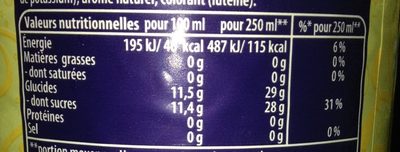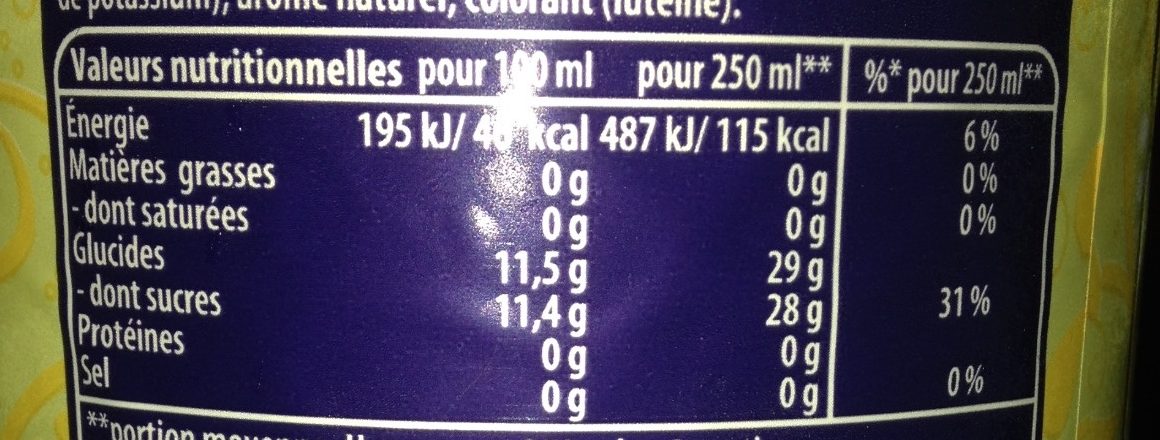Kas citron 🍋1,5 L - 1500 ml
This product page is not complete. You can help to complete it by editing it and adding more data from the photos we have, or by taking more photos using the app for Android or iPhone/iPad. Thank you!
×
Some of the data for this product has been provided directly by the manufacturer PEPSICO FRANCE.
Barcode: 8410408051368 (EAN / EAN-13)
Common name: Boisson gazeuse rafraîchissante au citron.
Quantity: 1500 ml
Packaging: fr:Bouchon en plastique, fr:ENSEZ BOUTEILLE AU TRI ET BOUCHON PLASTIQUE RECYCLER
Brands: KAS
Categories: Plant-based foods and beverages, Beverages, Plant-based beverages, Carbonated drinks, Fruit-based beverages, Sodas, Fruit sodas, Lemon soft drinks, Sweetened beverages
Labels, certifications, awards:
Green Dot, Triman

Stores: Magasins U, carrefour.fr, Auchan, Alccanbo, Carrefour, Smpliy Market
Countries where sold: France, Germany, Ireland, Spain, United States
Matching with your preferences
Other information
Preparation: Servir très frais
Conservation conditions: À consommer de préférence avant: voir sur le bouchon ou le col de la bouteille. Conserver à l'abri du soleil dans un endroit sec et tempéré.
Customer service: PepsiCo France, 15 boulevard Charles de Gaulle 92705 Colombes CEDEX
Report a problem
Data sources
The manufacturer PEPSICO FRANCE uses Equadis to automatically transmit data and photos for its products.
Product added on by floriane-yuka
Last edit of product page on by sebleouf.
Product page also edited by armelle, beniben, date-limite-app, dorado-jerome, driveoff, ecoscore-impact-estimator, foodviewer, kiliweb, magasins-u, openfoodfacts-contributors, org-pepsico-france, packbot, roboto-app, yuka.UjV3aEtMVWJsTUFHbXZNbTJ5dlk1WU5INEtXUFRET3hNdVUrSVE9PQ, yuka.UnBvYVNZMEdyZFlCcWRvL3B4L3dvOEFrbklMeVJtV09DOEFRSVE9PQ, yuka.WUlJS1BiWXpyZmdNcHZCZ3hrN2NwKzFONXJtS0JqcTFjTklNSWc9PQ, yuka.YUtNdEVmNE9oOHNsbWZGa3dTSHcyTkJwbks2TkFUdW5MTFVySVE9PQ.












